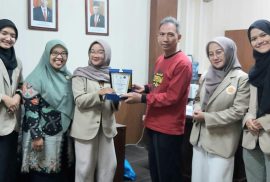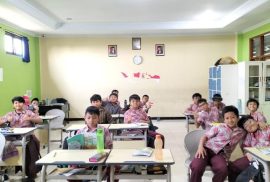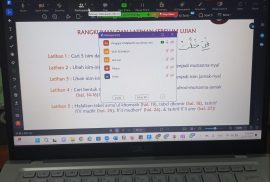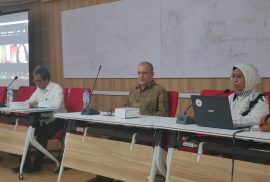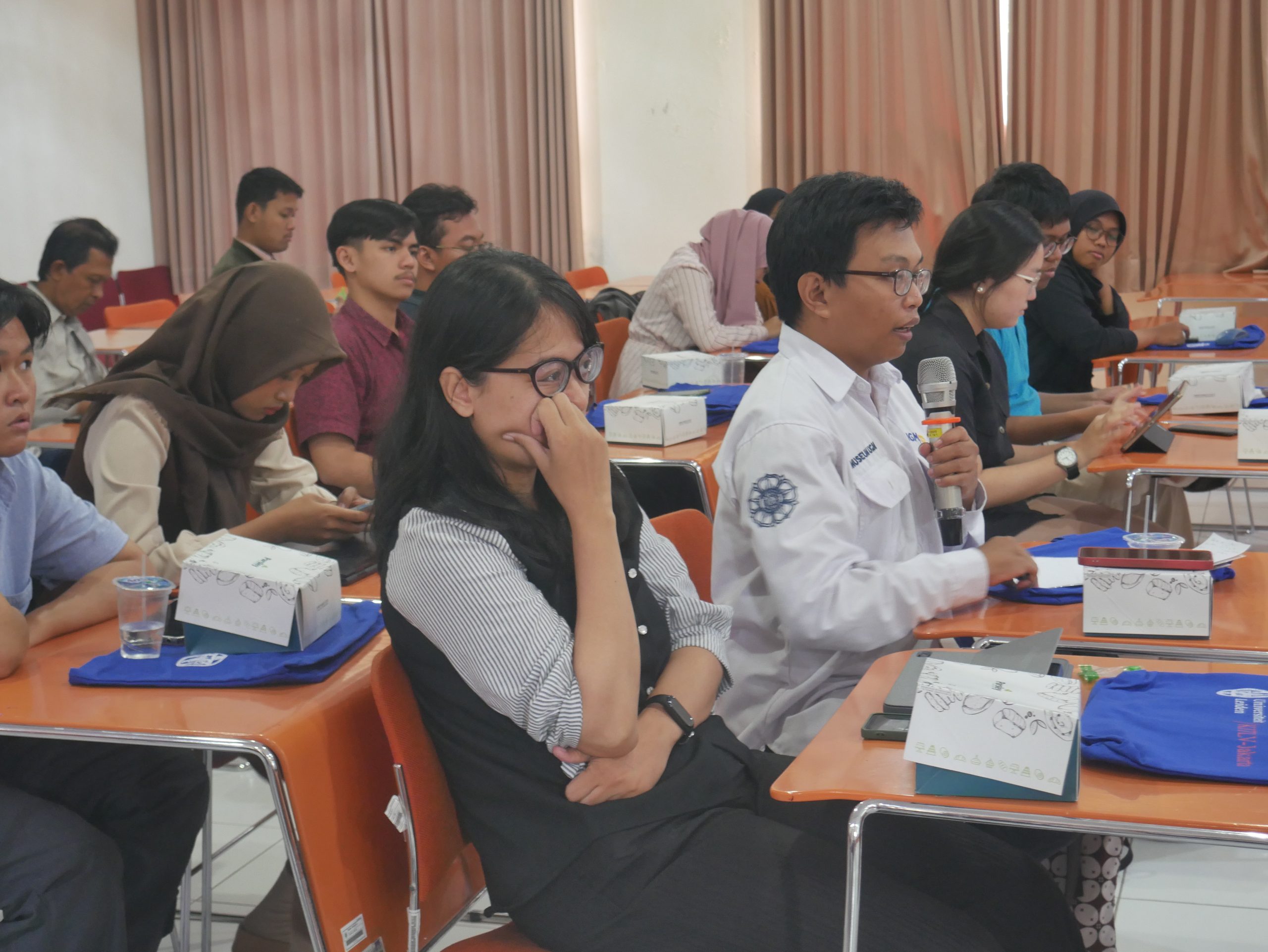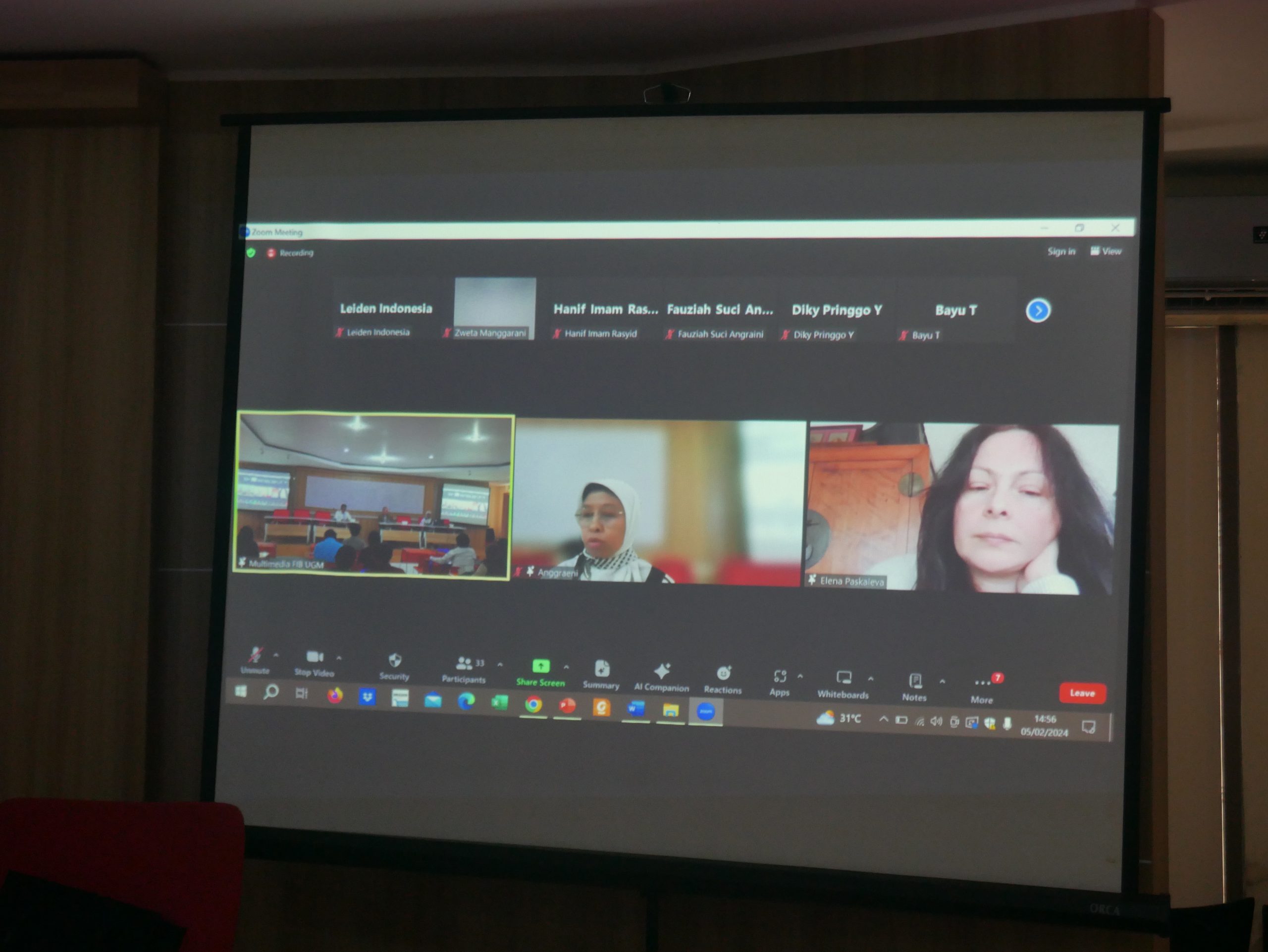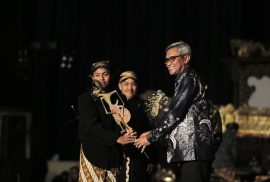SDGs 4: Quality Education|SDGs 8: Decent Work and Economic Growth|SDGs 16: Peace, Justice, and Strong Institutions|SDGs 17: Partnership for the Goals
Yogyakarta, January 27, 2024 – The internship program for UGM Arabic Literature students at the Sleman Regency Ministry of Religious Affairs Office was assigned to several service sections, namely Hajj and Umrah, Madrasah Education Section, and Public Relations Services. There are four students in this section. During the internship process, students were guided and monitored directly by the Mr. and Mrs. employees, they provided job descriptions that matched the students’ abilities, especially in the fields of communication, correspondence, archiving, and public services.
Some of the tasks given to the interns in the Hajj and Umrah section include: Assisting with the administration of registration, cancellation, and transfer of Hajj pilgrims’ portions; Assisting with the digitization of Hajj pilgrims’ data; Assisting with the registration of Hajj pilgrims’ passports; Assisting with the provision of Hajj consultation services to prospective Hajj pilgrims. The work sessions for the interns are adjusted to the working hours of the Sleman Regency Ministry of Religious Affairs Office.
For the Madrasah Education Section, the following tasks are given: Verifying data on educational personnel, starting from checking, validating, and ensuring the accuracy of the data; Managing the application on the Education and Teacher Personnel Management Information System of the Ministry of Religious Affairs (Simpatika) for educational personnel; Managing data and information systems for educational personnel, including updating data; Archiving supporting documents for the administrative needs of educational personnel; Assisting with the preparation of BOSDA and BOSNAS reports; Providing information services related to regulations, requirements, and facilities and infrastructure needs for educational personnel; Calculating the performance allowances for teachers and madrasah supervisors; Applying Ms. Excel formulas, especially VLOOKUP and HLOOKUP formulas, to ensure the accuracy of Teacher and Supervisor Performance Allowances.
Furthermore, in the public relations service, some of the tasks carried out include: Making videos of routine activities of the Sleman Regency Ministry of Religious Affairs Office; Making press releases; Assisting with the input of correspondence in the Sedakep application; Assisting with services at the One-Stop Integrated Service of the Sleman Regency Ministry of Religious Affairs Office. The work sessions are carried out in accordance with the working hours that have been applied for all employees of the Sleman Regency Ministry of Religious Affairs Office.

